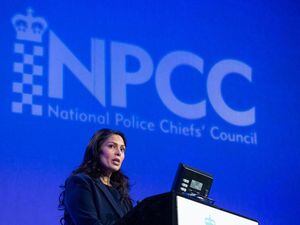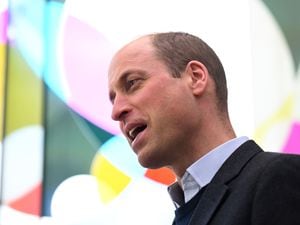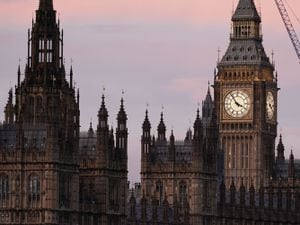Priti Patel: There must be no weak spots in efforts to cut crime
The Home Secretary told a crime summit she is ‘unequivocal’ in her support for the police but ‘will be unapologetic about holding you to account’.

Cutting crime is “non-negotiable” and there must be “no weak spots” in efforts to do so, the Home Secretary has told police chiefs.
Speaking at a crime conference on Wednesday, Priti Patel said she is “unequivocal” in her support for officers but added: “We need to pull out all the stops to deliver the decline in crime that people want to see.
“There must be no weak spots.
“These outcomes will be non-negotiable and I will be unapologetic about holding you to account.”
“Together we can lengthen the long arm of the law to ensure no criminals can escape – and, importantly, the public can have the trust in policing that you all deserve.”
Her speech came as ministers continued to dismiss allegations of bullying in the Home Office after claims that she clashed with senior officials, belittled colleagues and is distrusted by intelligence chiefs.
Earlier, Police Minister Kit Malthouse insisted there was “glutinous harmony” in the department and he had not witnessed bullying by his boss.
At the National Police Chiefs’ Council (NPCC) and Association of Police and Crime Commissioners summit in Westminster, Ms Patel announced an additional £41.5 million of funding for forces in 18 areas of the country worst affected by serious violence.
She also launched an eight-week consultation on plans to enshrine a Police Covenant in law.
The plan, first mooted in the Conservative Party’s general election manifesto, pledges to back the rights of serving or ex-police officers, staff and their families, recognise the responsibility and risks officers take, and introduce a code of ethics.
Ms Patel said in three years she wanted to see less crime, safer streets and “no excuses”.
Success would be “measured” against “national policing outcomes” focused on cutting crime, she said, indicating a possible return to setting performance targets.
NPCC chairman Martin Hewitt later told reporters if the public did not feel improvements by April 2023 then “I think we will have failed.”
Ms Patel told the audience “crime will not go away overnight” and the police deserve “full respect” for the “incredible job” they do, describing the covenant as a “commitment” to put officers first.
But she said: “I will also be unafraid to challenge you to do more.”
The public “deserve the freedom to live their lives without fear of violent criminals, terrorists and drug dealers”, she added.
“That’s why I’ve made it my priority to restore public confidence in our criminal justice system.”
The news follows calls from campaigners to make punishments for assaults on emergency workers even tougher.
From the middle of November 2018, the Assaults on Emergency Workers (Offences) Act doubled the previous maximum sentence to 12 months in jail for such offences.
But official figures released last week showed just 13% of criminals who attack police and emergency workers are being sent straight to jail, with more being let off with a fine, and suggested the average time behind bars was three months or less.
The Police Federation of England and Wales has long campaigned for tougher punishments for those who attack officers.
National chairman John Apter welcomed the plans for a covenant and said: “Policing is a dangerous and unpredictable job and it’s essential that there is something in place that ensures that police officers, staff, retired colleagues and their families receive the support they deserve.
“This consultation is an opportunity to help shape what a Police Covenant will look like. This is something I feel extremely passionate about and it’s great to see this taking a step closer to becoming a reality.”
Ms Patel and permanent secretary Sir Philip Rutnam – who is due to speak at the conference on Thursday – released a joint statement to deny reports of a deep rift at the top of the department while allies described her as a “demanding” boss but not a bully.
The reports of feuding prompted the head of the Civil Service to order an end to media leaks in a missive to Government staff.
Cabinet Secretary Sir Mark Sedwill told all civil servants that advice they provide for ministers and “any debates” around it should remain “private”.





